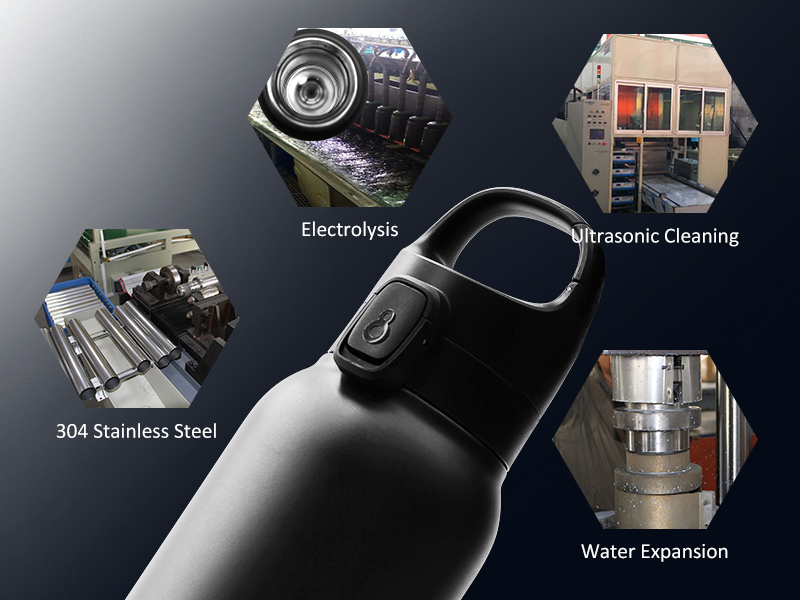Why are some stainless steel vacuum flasks exposed as poisonous vacuum flasks?
What kind of stainless steel vacuum flask is a poison vacuum flask? The function of the stainless steel vacuum flask is to satisfy people's drinking water, and the material requirement of the vacuum flask must be food grade. Thermos cups that are not food-grade materials can contaminate water and cause harm to the human body.
Stainless steel water cups are usually made of stainless steel, plastic, and silicone. The production processes used include metal processing, plastic processing, electrolysis, painting, etc. A good vacuum flask not only requires strict requirements on materials, but also strictly operates in accordance with food-grade product production standards in terms of production technology. What is a poison mug? Stainless steel uses industrial steel, and plastic silicone uses recycled materials. In the production process, the cleaning is not cleaned, the dedusting is not removed, the inner tank is not dried, and the spray paint uses paint with excessive heavy metals. Such a vacuum flask is really a "fatal water cup." Small workshop factories and profit-only businesses do not consider the safety and health of users at all in order to obtain huge profits.

When buying water cups daily, learn more about materials and know what kind of materials are qualified and safe food-grade materials. For example, stainless steel water cups cannot use 201 stainless steel as the inner tank of the water cup, and can only use 304 stainless steel food grade steel or higher than food grade. Plastic parts depend on whether they are rough or have obvious variegated colors. Do not buy them.
Dongguan Zhanyi Commodity Technology Co., Ltd. has passed a number of international certifications, and the raw materials purchased for the production of stainless steel water cups have passed international food-level testing certification. Therefore, the materials are classified and stored safely, and the production process is strictly operated in accordance with the international quality management system Each batch of products will be sampled and sent to the National Quality Inspection Center for testing, and all meet or exceed the national standard requirements. At the same time, export products have passed the US FDA and EU LFGB testing certification.